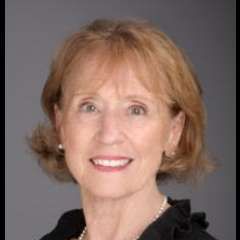There’s no denying that the work of Boris Eifman is super-dramatic, erotic, engrossing, beautifully lit and visually commanding, and that he has a troupe of magnificent dancers. But, whereas his first London production Anna Karenina proved near faithful to the Tolstoy novel, his second ballet Onegin that was seen this week in London, took great liberties with its text. Alexander Pushkin’s epic ‘novel in verse’ Eugene Onegin is one of Russia’s most treasured pieces of literature, a work of great narrative beauty which gives a detailed account of the lives and innermost thoughts of both cultured St Petersburg society and contented country folk. Its powerful prose offers both graciousness and refinement, and the emotions are genuine and come from the heart.
But Eifman has advanced the era from the early 1800s to post perestroika and glasnost 1991- a time when Russia, as it again became named, saw the collapse of the mighty Soviet Union and a huge transformation in the lives of its people. With the tremendous upheavals that occurred in the once vast empire, it was money and not nobility, which became the norm, and the country went wild on its so-called newfound freedoms. And this is what Eifman shows us in his Onegin created in 2009.
Again he uses snippets of Tchaikovsky - though with only a few extracts from the composer’s opera Eugene Onegin - along with nerve tingling high pitched rock music from Alexander Sitkovetsky, and in the 90 minute, two act ballet, he packs every modern emotion possible, stamping new slants on the characters. The electric guitar strumming Lensky and Onegin appear more than just pals with their various entwinings; the countryside is filled with mosquito-slapping peasant girls; Tatyana is far less bookish and more worldly wise as she regularly opens her legs wide in a most unladylike fashion; Olga is a wanton flirt with modern morals and Onegin knifes Lensky rather than fights a duel. And there’s much more! Zombies, proletariat running wild in black boots as a circular TV screen shows the fall of the country, boogie-woogie dancers, a dream scene filled with smoke and red flashing lights where a sex-crazed Onegin, now with long hair, red spangled dress coat and bare chest, forcibly ‘takes’ the innocent Tatyana on a slanting board held upright by strange creatures. But the action doesn’t end there. Act 2 begins with a terrified Onegin trying to keep out of helicopter lights which sweep the stage searching for Lensky’s killer; he has another tangled encounter with Lensky’s ghost and accompanying ghouls; and the kindly elderly general whom Tatyana marries in Pushkin’s tale, becomes a blind, dark-glasses, leather jacketed dictator whom she meets at a nightclub. Then we see the transformation of Tatyana from country girl to nouveau-riche Russian, and her physical change a la Cinderella where she is primped and showered by very camp beauticians running her across the stage in front of the designer dressed new elite dancers who waltz endlessly a la boredom. And finally there is the death of Onegin, knifed by the blind General, (which is not in the poem), and a post-script clip of, presumably, Pushkin writing, his papers flying upwards in a breeze.
No chance for boredom during this production! The scenes were short and episodic and there was little time to think of the whys and what fors of the actions. It certainly kept one’s attention. Eifman’s choreography was breathtakingly fast, filled with acrobatic, gymnastic movement. There were some beautiful moments where classical refinement was evidenced but there were far more brash and vulgar instances of split open legs and crotch views a la Lady Gaga, which seemed tasteless and very ‘Soviet’ - recalling the early days when modern choreography was made to shock. While the main characters had some powerful choreography to perform, the corps was left this time with repetitive steps and blank faces, which I suppose is what gas and oil money does for one.
Again it was the dancers who made the evening memorable. There were stunning performances from the committed and very talented principals whose energies and technique have to be admired and envied. The role of Onegin was danced by Oleg Gabyshev, (seen as Vronsky in Anna Karenina), and he is a charismatic and compelling force, able to throw himself into the air, turn double barrel twists, hoist the ballerina high above his head one-handed and convincingly convey the magntism and power of his role. Tatyana was danced by Maria Abashova, a dancer with beautiful line, leaps and flexibility whose very core demonstrated her understanding of the role. Dmitry Fisher made a jovial Lensky and later, an athletic ghost, while Natalia Povorozniuk was a flighty and persuasive Olga. Sergey Volobuev was the poker-faced blind General.


